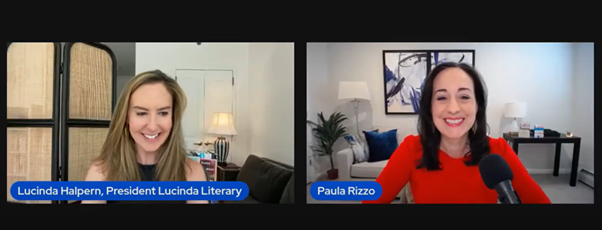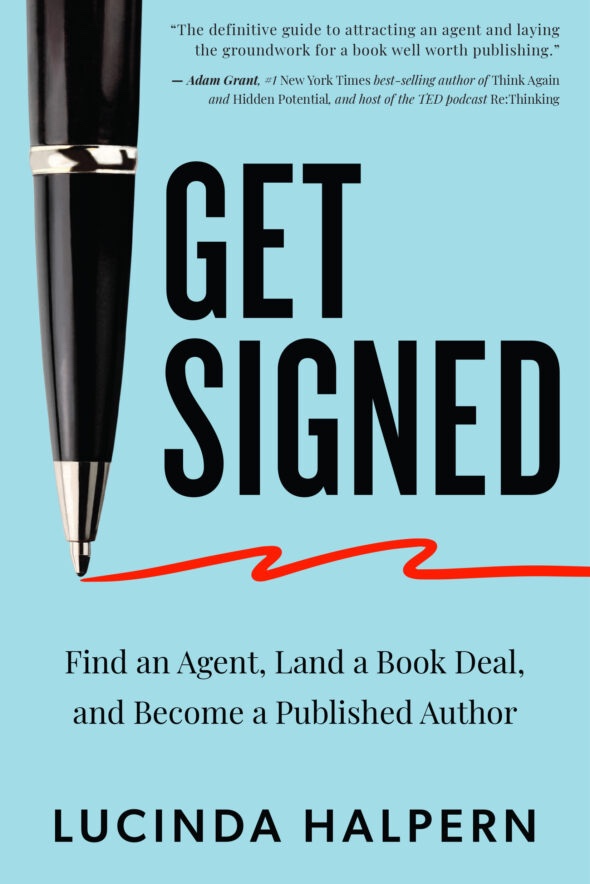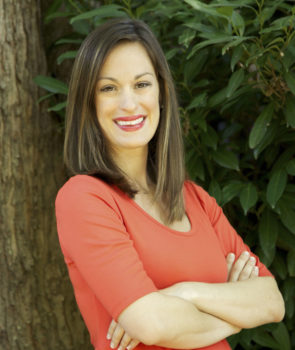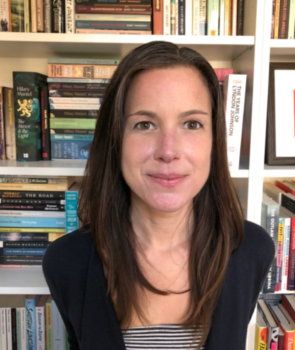Search
What Publishers and the Media Want to See in Your Potential — with Paula Rizzo
In today’s competitive publishing world, writing a great book isn’t enough. Whether you’re an aspiring nonfiction author, entrepreneur, or expert, understanding what publishers and the media are looking for can make all the difference between being overlooked and landing a book deal that changes your career.
In a recent LinkedIn Live conversation with media strategist and Emmy Award–winning producer Paula Rizzo, publishing expert Lucinda Halpern uncovered exactly what it takes to capture the attention of agents, publishers, and major media outlets. Below, we break down Paula’s top tips and insights into actionable strategies to build your author platform, increase your media visibility, and create irresistible book pitches that sell.
1. Start Before You Think You’re Ready
One of Paula’s biggest pieces of advice? Start building your platform before you have a book deal or proposal. The media and publishers are looking for experts who are already showing up, sharing ideas, and creating a following.
“It’s not real until the media thinks it’s real,” Paula says.
That means establishing credibility, creating content, and pitching yourself as an expert—even if you’re still in the early stages of your author journey.
Pro Tip: Start a blog, podcast, or LinkedIn newsletter on your topic. You don’t need permission to start showing up.
2. Become the Expert Before You Become the Author
In today’s publishing landscape, being seen as a thought leader is crucial. Publishers and media alike want to know that you’re an authority in your field and that you’ve already built social proof.
This “proof of concept” might look like:
-
Guest posts or podcast interviews
-
Hosting small workshops or focus groups
-
Running live events (think: “Lists & Libations” or topic-specific meetups)
-
Engaging with your target audience regularly on social platforms
If you’re writing for Gen Z, for instance, are you already in conversation with that generation? Are you using their language, solving their problems, and showing up in the places they are?
3. Know the Market — and the Media
Authors and entrepreneurs often make the mistake of pitching to media outlets without doing the necessary market research. Before you write a pitch, ask:
-
What kind of stories does this outlet typically cover?
-
Who is their audience?
-
Does my topic align with their format and values?
Just as you need to know your book’s target reader, you also need to understand your media audience. Misaligned pitches waste time and damage credibility.
4. Focus on Visibility, Not Just Follower Counts
One of the most common questions: How much media is enough? The answer? It depends. While publishers look for platform, it’s not only about numbers—it’s about visibility and engagement.
Do you have:
-
A podcast with consistent downloads?
-
Speaking gigs with targeted audiences?
-
A social following in your niche (even if it’s small but engaged)?
-
Strong search results when your name is Googled?
“Platform is a composite,” Lucinda reminds us. “It’s not just about how many followers you have—but what kind of impact you’re making.”
Watch the Video instead
5. Create Media-Worthy Content from What You Already Have
Paula shared how she repurposed a 9-year-old blog post into a recent TV segment—proving that your best media angles might already exist in your archives.
Ask yourself:
-
What questions do people ask you most often?
-
What blog post or lesson could become a segment, listicle, or pitch?
-
What unique framework or quiz could be turned into visual content?
Video is especially powerful, not only for media, but also for publisher sales teams and foreign rights departments. The more you can show your energy and passion on camera, the more others will believe in your message.
6. Practice the Accordion Method: Short, Medium, Long
When preparing for media interviews—or even querying an agent—Paula recommends the accordion method:
-
Have a 5-second answer: Your core message or hook.
-
A 30-second answer: The expanded version with 1–2 supporting points.
-
A 2-minute answer: Great for podcasts or deeper interviews.
Being media ready means being able to control the conversation, no matter the format.
📥 Download Paula’s “10 Questions Every Author Needs to Answer in the Media” at paularizzo.com/10Q
7. Passion Is the Platform
Publishers don’t just want a good book. They want a committed author—someone who is willing to talk about their book for years, not just during launch week.
“The book is yours forever,” says Paula. “So make sure it’s something you’re deeply aligned with.”
Agents love hearing that a book is your life’s work. Just avoid overpromising spinoffs too early—especially in your query. Focus on what you know, what you’ve proven, and what you’re willing to promote for the long haul.
Final Thoughts
Whether you’re building your author brand, pitching media, or querying agents, the goal is the same: Start the conversation. Show that you’re already engaged in the world you want your book to enter.
And remember: the media and publishers are looking for the same thing—a compelling message, a credible expert, and a reason for readers to care.
If you’re just starting out, explore our beginner resources on Get Signed









